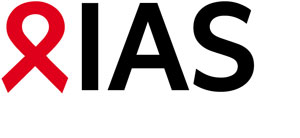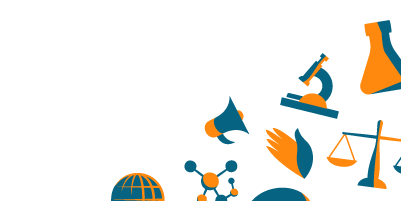Leaders at AIDS 2022 warn that the world is losing ground against HIV
29 July 2022
Despite scientific breakthroughs, millions of lives needlessly lost to HIV.
29 July 2022 (Montreal, Canada) – More than 9,500 in-person and nearly 2,000 virtual participants are registered to attend the fully hybrid AIDS 2022, the 24th International AIDS Conference. The conference takes place from 29 July to August 2 in Montreal and virtually.
“In the face of duelling pandemics, we are coming together to celebrate the resilience of our community and incredible advances in HIV prevention, treatment and cure research,” Adeeba Kamarulzaman, IAS President and International Co-Chair of AIDS 2022, said. “But let’s be clear, we have lost ground over the past two years and the most vulnerable have been hit hardest. That is why we’re bringing together the worlds of research, policy and activism at AIDS 2022 to restore momentum in the global HIV response. To overcome HIV, we must re-engage and follow the science.”
Montreal Manifesto calls for equity and inclusion in global HIV response
On the eve of the conference, COCQ-SIDA launched the 2022 Montreal Manifesto, an update of the historic community declaration issued in 1989 when Montreal last hosted the conference.
COCQ-SIDA conducted a broad consultation in the hopes that all people living with and affected by HIV feel the demands in the manifesto reflect their own and use the manifesto as a tool to communicate their needs to those with the power to change things.
“We know that much has changed in HIV, especially in treatment, since 1989,” Ken Monteith, Executive Director of COCQ-SIDA, said. “We also know that access to the treatment miracles is not equitable and often fragile, and that very little progress has been made on human rights issues.”
The document is available in English, French and Spanish at https://www.cocqsida.com/, and there is a link on that page to sign the manifesto in solidarity.
UNAIDS warns of faltering global response to HIV
Citing the 2022 UNAIDS Global AIDS update, titled “In Danger,” UNAIDS Executive Director Winnie Byanyima shared that about 1.5 million new HIV infections occurred in 2021 – over one million more than the global targets. The report revealed that an adolescent girl or young woman acquires HIV every two minutes. The UNAIDS report also showed that the number of people on HIV treatment increased more slowly in 2021 than it has in over a decade. Other indicators of faltering progress include the fact that only 52% of children living with HIV have access to life-saving medicine, and that the gap in coverage between children and adults is increasing rather than narrowing.
“There were 650,000 AIDS-related deaths last year, a life lost every minute despite effective HIV treatment and tools to prevent, detect and treat opportunistic infections. Leaders must not mistake the huge red warning light for a stop sign,” Byanyima said. “What we need to do is not a mystery. We know it from what we’ve repeatedly seen succeed across different contexts: shared science, strong services and social solidarity. We can end AIDS by 2030. But the curve will not bend itself. We have to pull it down, together.”
PEPFAR shows substantial impact in babies born HIV-free
U.S. Global AIDS Coordinator and Special Representative for Health Diplomacy Ambassador-at-Large John Nkengasong announced that through the reduction of HIV incidence and prevalence among adolescent girls and young women, women of childbearing age and adult men, an additional 3.5 million babies were born HIV-free from 2004 to 2021. Now, a total of 5.5 million babies have been born HIV-free as a result of the U.S. President’s Emergency Plan for AIDS Relief (PEPFAR) and its partners.
“In collaboration with countries, communities and our partners, PEPFAR supported comprehensive HIV prevention programming for adolescent girls and young women and voluntary medical male circumcision, and we scaled up treatment for women and men with viral suppression. In total, 5.5 million babies have been born HIV-free because of our comprehensive prevention program and this is an incredible milestone for our programme and for the next generation,” Nkengasong said.
People living with HIV call on global leaders to embrace treatment as prevention
Since the launch of the advocacy and communications campaign, “U=U” or “undetectable equals untransmittable”, in 2016, advocates around the world have worked to raise awareness of the fact that people living with HIV who – through antiretroviral treatment – reach and maintain an undetectable viral load cannot sexually transmit the virus to partners.
“The scientific fact that people living with HIV on effective treatment cannot pass on HIV is revolutionary, changing millions of lives of people and accelerating progress toward ending the epidemic,” Maurine Murenga, Director of the Lean on Me Foundation, said. “Yet despite validated evidence and global recognition by health leaders, including the World Health Organization and the International AIDS Society, U=U remains widely unknown. The path to ending the epidemic is right in front of us. By centring treatment access for all people living with HIV, we can stay healthy and stop new transmissions. Everyone wins with U=U.”
###
IAC – the International AIDS Conference – is the premier global platform to advance the HIV response. As the world’s largest conference on HIV and AIDS, it sits uniquely at the intersection of science, advocacy and human rights, bringing together scientists, policy makers, healthcare professionals, people living with HIV, funders, media and community. Since its start in 1985, the conference continues to serve as an opportunity to strengthen policies and programmes that ensure an evidence-based response to HIV and related epidemics.
The 24th International AIDS Conference – known as AIDS 2022 – will be hosted in Montreal, Canada, and virtually from 29 July to 2 August 2022.
For more information, visit www.aids2022.org.
IAS – the International AIDS Society – convenes, educates and advocates for a world in which HIV no longer presents a threat to public health and individual well-being. After the emergence of HIV and AIDS, concerned scientists created the IAS to bring together experts from across the world and disciplines to promote a concerted HIV response
Today, the IAS and its members unite scientists, policy makers and activists to galvanize the scientific response, build global solidarity and enhance human dignity for all those living with and affected by HIV.
The IAS also hosts the world’s most prestigious HIV conferences: the International AIDS Conference, the IAS Conference on HIV Science and the HIV Research for Prevention Conference.
For more information, visit www.iasociety.org.
Media contacts:
Leila Darabi
Email: [email protected]
Michael Kessler
Email: [email protected]

 © Copyright 2022 – 2024
© Copyright 2022 – 2024 
